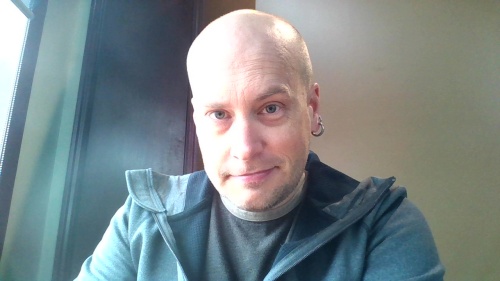10 Things to Do Instead of Writing
Sometimes you just can’t get a word out. You’re staring at the page, the title says “Chapter 1,” but there’s nothing else below. You’re stuck. And this was supposed to be your big novel.
Writer’s Block is something that affects everyone (except perhaps Stephen King and James Patterson), yet there are a lot of people out there who believe it’s a myth. It’s not surprising, really. In many cases, Writer’s Block just means you don’t want to write.
And why should you? You’ve already done a lot of writing, and maybe you’re getting tired of it. Maybe you’re bogged down in some heavy plot work, or perhaps you’ve sent out a dozen or so queries, and you’re eagerly waiting for a response (which will come in 12 weeks, if you’re lucky). Maybe you’ve finished your first draft, and common sense tells you to put it aside and go do something else for a while.
Here’s a helpful list of 10 things you can do instead of writing (reading this article doesn’t count, btw). It will help address your Writer’s Block, or whatever other reason you have for not writing.

- Blogging – So maybe reading this article doesn’t count, but writing it sure does. Writing a listicle or other blog post is a great way to grow your content base, and it gets you writing in a way that doesn’t feel like the usual slog of writing your novel. It takes you out of that moment, and lets you run free on a whole host of other topics. Having content is a big part of being a writer. For one, it’s really helpful to have writing samples for freelance writing jobs. Maybe you want to write about your writer’s experience, or maybe you want to help other writers get through a phase which you just encountered. Maybe you just like collecting porcelain bagels, and you want to share that passion with other people. Get to it!
- Researching – Sure, surfing the Web may be 90% of your daily routine anyway, but that doesn’t mean it’s useless. Researching is one of the best things you can do to make your books and characters seem more realistic. Nothing takes you out of a book faster than a glaring inconsistency, such as your 1980’s detective using an LED flashlight to illuminate a darkened room. Research it up! Just be sure to research smartly. No sense in adding yourself to a government watchlist because you were trying to figure out the best way to murder someone using household items.
Researching is one of the best things you can do to make your characters more realistic.
Tweet
- Watching Television (of your genre) – This one’s kind of a cheat. I watch TV all the time. However, it’s important to understand your genre and your readership demographic. This can be done by watching corresponding television shows. Trust me, no one wants to read a cozy mystery where there’s a graphic description of the killer vivisecting his victim. They never did that on Murder She Wrote. Don’t you do that. Some genres have very specific rules. That’s why Wikipedia cites 47 different subgenres of Science Fiction (yes, including Feghoot). Pick your favourite Sci-Fi show, and watch it for a bit, then try to define the subgenre. It’s a good exercise, and you may notice the subgenre changing from episode to episode.
- Reading (anything and everything) – Reading is fundamental (and a clever reference to the nation’s largest literacy nonprofit organization). The more you read, the better your grammar, vocabulary, and ideas of plot and character development. Once you’ve read a book, go over it again, and figure out what made it good/bad. Try looking at the book from a reviewer’s perspective, and when your own book is done, you’ll have a better understanding of why it sucks (and how to fix it). And really … you’re supposed to be a writer. You should always be reading.
- Growing Your Online Profile – This one’s a little trickier, but you know what I’m talking about. There are dozens of useful social media sites which you’ll want to be using to sell your book once it’s finished. And how are you going to sell a book on Instagram, if you only have 3 followers? Each social media site has its strengths and weaknesses. Learn what those are, and focus on the strengths. Instagram’s good for pictures; Twitter’s good for small snippets of content and announcements; Wattpad’s great for One Direction fan fiction; and Facebook is great for
racist memes and Minion pictures… I mean, for drawing fans to your blog (remember all the content you were going to put up there?). Ultimately, if you’ve got a solid online profile, people will come to you when you’re ready to publish.
If you’ve got a solid online profile, people will come to you when you’re ready to publish.
Tweet
- Learning How to Publish – This is a great non-writing activity which will help you, whether you’re going for traditional publishing or indie publishing. Once your agent gets you a contract, it’s tempting to just sit back and let the profits roll in. But it doesn’t work like that, not even in the regular world of publishing. You’ve got to be out there and engaging your audience, making them want your book. It really helps if you know what’s going on.
- Learning How to Query – Maybe I should have moved this one up a bit. Obviously, before your agent gets you a publishing deal, you have to have an agent. Think of it like a job interview, except that everything’s backwards, and you’re the company trying to recruit a hot new talent. You’ve got to prove to them you’re the company to work for, that you’ve got the best working environment, the best free soft drinks and hot lunches, and you’ll promise them the most money. Yeah, that’s kind of how it works. You have to entice the agents to you, but they ultimately work for you and they’re your ticket into a big publishing house. Does it seem fair? No. Is it how things work in publishing? Yes. Learn how to query properly.
- Editing – I could also say “Learning How to Edit” here, but let’s assume you’re already familiar with the MLS and Chicago manuals of style. I’d say about 50% of editing is also learning, because cleaning up your manuscript makes you a better writer. After you’ve spent a day trying to figure out why a story isn’t flowing, you tend to remember that kind of tedium, and you avoid that problem in the future. Either that, or you’re more familiar with the problem, and you’ll look for it in your next project. Editing old projects can also make them like new, and worth looking at again. Go find something you wrote in high school, and see if you can make it into something that doesn’t embarrass you.
- Engaging Beta Readers – Part of your social network should include people who will read your book for free, while giving you useful feedback. Beta readers are incredibly helpful, in that they will tell you if your book sucks before it goes live. That stuff is like gold to an aging prospector. It’s even better if they’re not close friends or family, and have no vested interest in making you happy. Beta readers are the litmus test for your book: If they don’t like it, you’re in trouble. If they mostly liked it, but had some issues, take those issues to heart and fix them before you launch. Keep in mind that beta reading can take time. Weeks, even. Engage them early.
- Writing – I know this article’s about things to do instead of writing, so calm down. Hear me out. It doesn’t have to be your novel. Many of the previous points here involve a degree of writing, or learning about writing and the industry. It all helps out. Write an article. Write a short story. Write a list about things you’d need to do on a deserted island after the zombie apocalypse. Try some writing prompts. Here’s one for free: Write a small story about the most embarrassing thing your villain ever did. Make it a thousand words long. BAM, you just wrote a short story. Publish it somewhere.
D. H. McKee is a writer and contemporary abstract artist.


 Previous Post
Previous Post